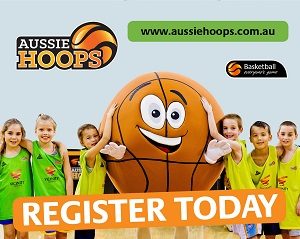The development, enjoyment and welfare of players remain the key areas of focus for coaches at all levels of the sport. With the players the priority of all things coaching, we thought we would ask some elite current and former players what they value most in a coach.
We spoke to a host of professional players from the Australian national teams program, the Women’s National Basketball League and National Basketball League and asked them to share the traits they most value in their coaches. This included a host of Olympians, NBL and WNBL champions, as well as players who have progressed through the Basketball Australia pathway.
Some coaches may be surprised that X’s and O’s and the technical/tactical side of the game didn’t feature heavily in the identified areas from our panel of elite players. The responses were heavily weighted to relationships, genuine care, player engagement and communication.
Of the 30 dot points provided from our seven contributors, only two reference any technical/tactical components. The other 28 pertain to what are often incorrectly termed the “soft skills” of coaching.
Some of our contributors have started their coaching journey and will no doubt be applying these values and observations into their coaching.
Thanks to the players, both current and retired, that contributed their thoughts. This sort of sharing of information and insights is so valuable for coaches of all levels.
Shane McDonald – Former NBL player and 7-time All SEABL team member
- The ability to develop a sense of care and connection with their players and treat them like human beings first.
- They have a deep understanding of the game and an ability to communicate it succinctly to simplify the game and highlight the important elements to be successful.
- They understand the strengths and limitations of their players and have the ability to create an offensive and defensive style of play that utilises individual and collective strengths.
- They have an ability to get out of the way, demonstrate confidence in their players through empowerment, and not overcoach

Tessa Lavey – Bendigo Spirit WNBL, Australian Opal, 2016 Olympian
- Open and honest communication
- Flexibility, being able to adjust on the fly is a real skill for a coach
- Understanding all players are different and knowing how to get the best out of each individual player
- The ability to make every player within the tea, no matter their role, feel valued
Lauren Nicholson – Townsville Fire WNBL and Australian Opal
- A coach that can be approachable and give honest feedback/advice
- Someone that genuinely cares for all their players
- The coach that invests time in making individuals better
- The ability to listen and communicate well
Kathleen MacLeod – Former Australian Opal, 2012 Olympian and WNBL Rookie of the Year
- Honesty
- Open communication style
- Optimistic, but realistic
- The ability to create an enjoyable, comfortable environment to be in
- Respect for everyone
- Be up front
- Competitive with a strong desire to win

Sarah Graham – Former WNBL Rookie of the Year
- High integrity
- Knows what they’re talking about and knows their players – able to balance the two to get the best outcome for the team and individuals
- Less talk more action/activity – get to the point and lets the players play
- Truly cares about their players and the team – not personal gains
Matthew Knight – 3-time NBL champion and 2003 FIBA Under 19 Gold Medallist
- Accountability – A coach who holds his players accountable for their actions. The coaches I always valued held all players accountable no matter if it was a training player to the top player.
- A coach that gets to know his players away from the court. Whilst it is important on court it is also valuable. I loved how Rob Beveridge and Matty Neilsen took the time to spend time with players away from the court

Anthony Petrie – 259 game NBL veteran and former Australian Boomer
- Open, honest, two-way dialogue
- Freedom of thought – allowing players to “break a play to make a play”
- Care and value of relationships – understand the player’s story
- Non-negotiables/expectations on court both defensive and offensive and off court standards/discipline
- Challenge and teach
Coaches can always learn from players and engaging in worthwhile conversations, asking questions and seeking feedback are important tools for coaches at all levels of the sport.




Leave a Reply